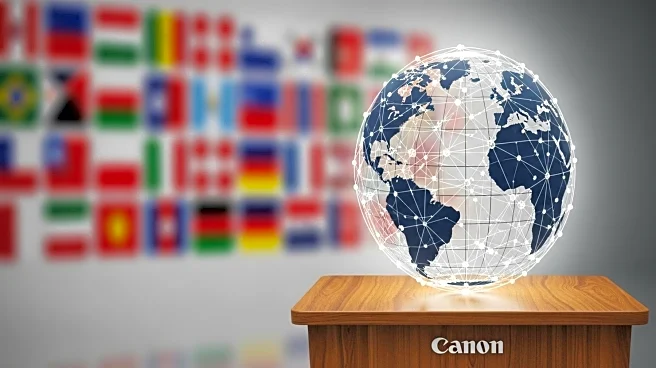What's Happening?
The United Nations General Assembly is convening in New York City to mark its 80th anniversary. However, the atmosphere is overshadowed by ongoing global conflicts and a looming budget crisis. The assembly, traditionally a platform for world leaders to propose solutions and strategies, is facing skepticism regarding its effectiveness. Key issues include Russia's prolonged war against Ukraine, the Israel-Hamas conflict in Gaza, and unmet global development and climate change goals. The U.N.'s humanitarian aid efforts, a historically strong area, are now threatened by budget cuts, donor apathy, and staff reductions. Richard Gowan, U.N. director for the International Crisis Group, described the organization as being in 'free fall,' highlighting the severity of the challenges faced.
Why It's Important?
The challenges faced by the United Nations have significant implications for global governance and international cooperation. The organization's ability to address pressing issues such as conflict resolution, humanitarian aid, and climate change is crucial for global stability. Budget constraints and reduced donor support could hinder the U.N.'s capacity to execute its mandates effectively, impacting millions worldwide who rely on its aid and intervention. The skepticism surrounding the U.N.'s relevance may lead to decreased international collaboration, affecting efforts to tackle global crises. Stakeholders, including member states and international organizations, may need to reassess their support and strategies to ensure the U.N. remains a pivotal force in global affairs.
What's Next?
The U.N. General Assembly's discussions may prompt member states to reconsider their financial contributions and support for the organization. Potential reforms could be proposed to enhance the U.N.'s efficiency and effectiveness in addressing global issues. The assembly may also serve as a platform for diplomatic negotiations and conflict resolution efforts, particularly concerning ongoing wars and humanitarian crises. The outcomes of these discussions could influence international policy and cooperation, shaping the future role of the United Nations in global governance.
Beyond the Headlines
The current situation at the United Nations highlights broader ethical and cultural challenges in international relations. The organization's struggle to maintain relevance amid global crises reflects the complexities of multilateral diplomacy and the need for innovative approaches to conflict resolution and development. The anniversary gathering may serve as a catalyst for introspection and reform, encouraging member states to prioritize collective action and shared responsibility in addressing global challenges.








